 Weird Stuff
Weird Stuff  Weird Stuff
Weird Stuff  Our World
Our World 10 Ways Your Christmas Tree Is More Lit Than You Think
 Movies and TV
Movies and TV The 10 Coolest Stars to Set Sail on The Love Boat
 History
History 10 Things You Didn’t Know About the American National Anthem
 Technology
Technology Top 10 Everyday Tech Buzzwords That Hide a Darker Past
 Humans
Humans 10 Everyday Human Behaviors That Are Actually Survival Instincts
 Animals
Animals 10 Animals That Humiliated and Harmed Historical Leaders
 History
History 10 Most Influential Protests in Modern History
 Creepy
Creepy 10 More Representations of Death from Myth, Legend, and Folktale
 Technology
Technology 10 Scientific Breakthroughs of 2025 That’ll Change Everything
 Weird Stuff
Weird Stuff Ten Bizarre Facts About The Doge Meme
 Our World
Our World 10 Ways Your Christmas Tree Is More Lit Than You Think
 Movies and TV
Movies and TV The 10 Coolest Stars to Set Sail on The Love Boat
Who's Behind Listverse?

Jamie Frater
Head Editor
Jamie founded Listverse due to an insatiable desire to share fascinating, obscure, and bizarre facts. He has been a guest speaker on numerous national radio and television stations and is a five time published author.
More About Us History
History 10 Things You Didn’t Know About the American National Anthem
 Technology
Technology Top 10 Everyday Tech Buzzwords That Hide a Darker Past
 Humans
Humans 10 Everyday Human Behaviors That Are Actually Survival Instincts
 Animals
Animals 10 Animals That Humiliated and Harmed Historical Leaders
 History
History 10 Most Influential Protests in Modern History
 Creepy
Creepy 10 More Representations of Death from Myth, Legend, and Folktale
 Technology
Technology 10 Scientific Breakthroughs of 2025 That’ll Change Everything
10 Heart-Warming Tales from the Worst Places on Earth
In this day and age, it’s easy to get depressed. Turn on the TV or switch on your iPad and you’ll be bombarded with stories of death, destruction and mayhem. Whether it’s extremists waging brutal war in our streets, the country self-destructing over the rights of gay people, or news of our drones blowing another distant wedding party to pieces; each passing day seems to bring yet more misery. But sometimes, hope can take hold in the most unlikely of places. As an antidote to all the recent nastiness, here are 10 heart-warming stories of humanity from the most-inhuman places on Earth:
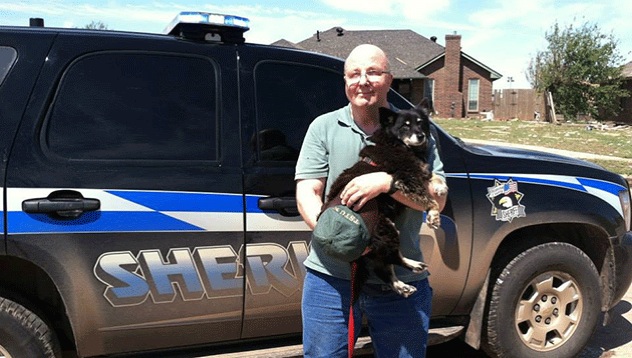
Last week a tornado touched down in Oklahoma, reducing the town of Monroe to rubble. Homes were destroyed, families separated and 24 people killed. In other words, it was a catastrophe—and, within hours, news sites were awash with images of misery, devastation and more misery. Because this is the internet after all, the most-shared photo quickly became one of a mournful collie standing watch over a demolished house. The story went that ‘Susie’ was guarding her owner’s body, and our hearts collectively broke like a bunch of hormonal tweens watching the last installment of Twilight. By any sane reckoning, that image was sadness personified: where would the adorable little mutt go now?
How about home to her owner? In the sort of twist that would be mawkish in a Spielberg movie but is awesome in real life, it turned out Susie’s owner was not only alive—he was scouring the devastated town, desperate to find his dog. Because sometimes the internet really does have its uses, his sister spotted Susie’s picture on Facebook and alerted the sheriff’s; leading to a touching reunion. If that wasn’t enough ‘awww’ factor for one entry, here’s proof that Susie and her owner weren’t the only ones.

Of all the unlikely settings for a heart-warming tale, ‘Nazi forced labour camp’ should be pretty high on the list. But try telling that to Luigi Pedutto and Mokryna Yurzuk. In 1944, they were both interred in an Austrian concentration camp—he as an Italian prisoner of war, she because you can add ‘Ukrainians’ to the list of people Hitler hated for no reason. For a year they toiled together in conditions most of us can’t even imagine, until they eventually fell in love—at which point the camp was liberated and the Soviets carted Mokryna back behind the iron curtain. Because 20th century politics sucked, Pedutto was refused a Visa and they remained separated for 60 years.
Then, in 2004, Pedutto decided to try his luck again. In a final argument for reality TV being not totally-awful, he wrote in to a Russian TV show, which tracked down Mokryna and reunited them live on air. The two have now resumed a courtship that survived Hitler, Stalin, the Cold War, reunification and six decades—because sometimes, true love isn’t just a cliché.
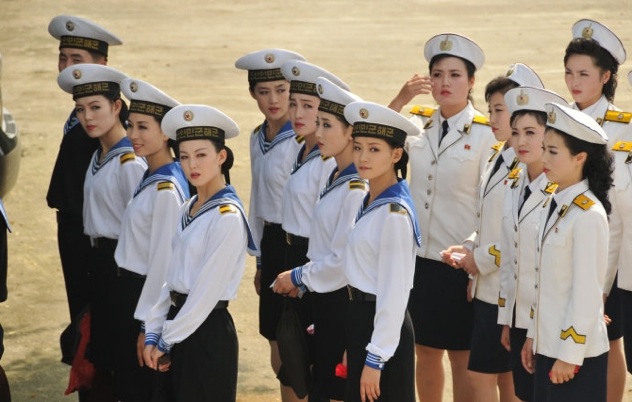
North Korea is a dark place; both metaphorically and literally. Satellite images taken at night show an empty space hemmed in by the burning light of a thousand South Korean and Chinese cities. Thanks to an economically incompetent and inhuman regime, the only city in the country that gets electricity is the capital Pyongyang—everywhere else festers in darkness. And, if you’re a dirt-poor adolescent that’s fantastic news.
In her book ‘Nothing to Envy: Real Lives in North Korea’, Barbara Demick reveals how even the most-brutal regime on Earth has failed to quash romance. Across the country, teenagers use the lightless nights to plan trysts, meet partners and generally do what kids across the world do when they’re young and shy and in love. Because there’s no electricity, party snoops who would otherwise stop them are flying blind: meaning the kids have the night to themselves. And boy do they use it well: at the bottom of this page is a heart-warming tale of one girl’s illegal romance with a boy from another village. In other words, even in the most tightly-controlled environment on Earth, love has still managed to find a way.
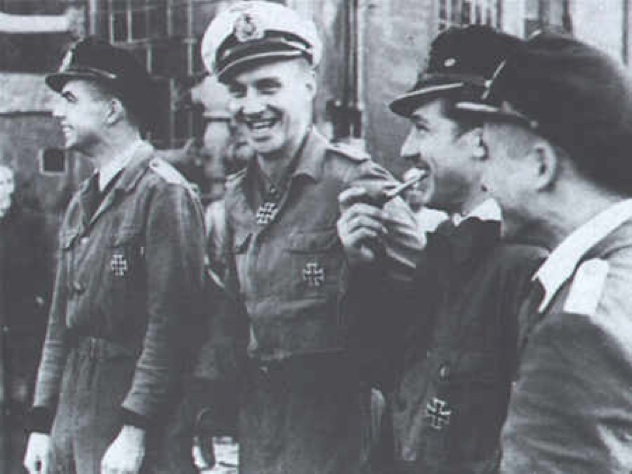
During the Second World War, the German U-Boat submarines became notorious among sailors. So when a Greek crew realized one was on their tail in 1939, they decided to abandon ship. No sooner were they overboard than it became clear this was a dumb idea: the sea was stormy, there was still a German U-Boat nearby and their lifeboats sucked something bad. How bad? Well, they were barely clear of the doomed ship when one capsized, throwing the sailors into the water. By all rights, this should have been game over for the Greeks—had the U-Boat captain not had a sudden attack of humanity.
Giving orders to surface, he brought the 28 Greeks aboard and had his crew carry them to neutral Ireland. Once there, he deposited them on the beach, before sailing back into the war. Let me repeat that: a Nazi officer in the middle of one of the most brutal wars in history quietly saved 28 lives for no other reason than he was a decent guy. There is a word for people like that, and that word is ‘awesome’.
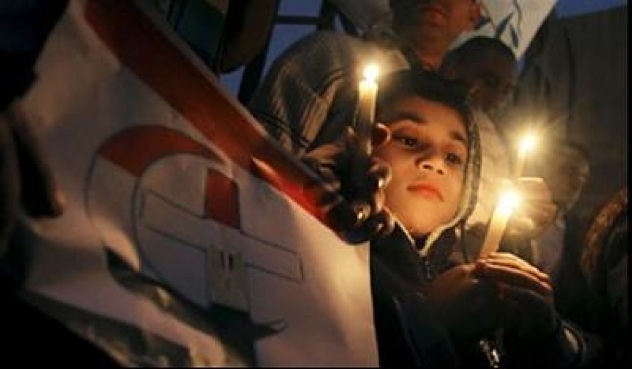
If you only ever heard about the world through newspapers and blogs, you’d be forgiven for thinking we were at the epicenter of an epic battle between East and West. The idea goes that Islam and Christianity are incompatible and we all just want each other dead. Well, try telling that to Egypt.
In 2011, a bunch of extremists attacked a church in Alexandria, killing 21 Coptic Christians. Upon hearing that it was ‘open season’ on their Christian neighbors, Egypt’s Muslim majority ran out their houses, found the nearest church . . . and acted as human shields. Yeah: they surrounded the churches, risking their own lives to keep their countrymen safe. As fantastic as this is, we’re not done yet—not by a long shot. See, in the midst of a violent revolution, stopping to pray to Mecca five times a day can leave you a little vulnerable. Unless, that is, you have a heck-load of Christians ready to repay a favor and stand guard around you, ready to fight to the death. So yeah, everyone came to each other’s aid when they needed it most. What was that about ‘incompatibility’ again?
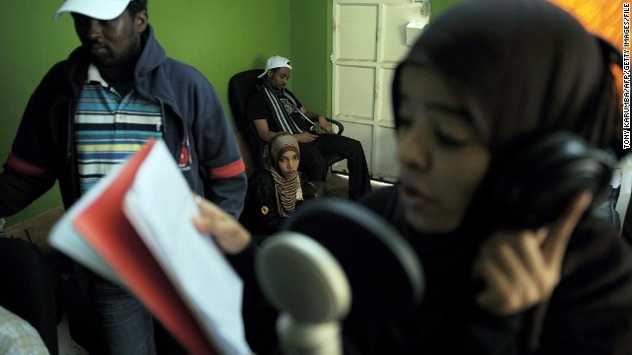
In America, if you write a rap ‘dissing’ a politician you’ll either get ignored or become a viral sensation for the wrong reasons. Not so in Somalia. Since the government collapsed in the ’90s, most of the country has been controlled by vicious warlords. In 2006, a terrorist group that took over most of the south even banned listening to music on pain of death. So you can imagine the sort of courage you’d need to insult these guys. Well, meet the man with the largest testicles in the world.
In 2004, Shiine Akhyaar Ali founded Waayaha Cusub a Somali group that made a name for itself singing anti-jihad songs and mocking local warlords. Determined to get their pro-peace message out whatever the cost, they kept on making music even after militants shot Shiine five times in 2007. And guess what? They won: two years ago the militants were driven from the capital, Mogadishu, and Waayaha Cusub got busy organizing music festivals. They’re currently using their music and workshops to give kids who’ve lived all their lives with violence a peaceful outlet, and to sweep away the last traces of extremism. Maybe Kanye should just think about that for a second next time he compares himself to the Messiah.

The Syrian civil war has thrown up its fair share of horrific moments. But, even in the midst of the worst depravity imaginable, good deeds sometimes still happen.
After a rocket attack left his younger brother Abdulrahman in need of an amputation, 24 year old Omar decided no relative was going to die on his watch. Only problem being: they were in the middle of a warzone, with his brother now incapable of walking. How the hell was he going to get him to safety?
Simple: acting like the older brother we all wish we’d had, Omar strapped his younger sibling to his back and literally walked to Turkey. Chew on that for a second. In recent weeks, the conflict has spilled over into Turkish towns; the border has become effectively lawless and crossing it more dangerous than juggling hand grenades. Yet Omar not only crossed it, he did it with his injured brother strapped to his back. So, in short, 11 year old Abdulrahman is now alive, thanks to his big brother being the humanitarian equivalent of the Terminator.
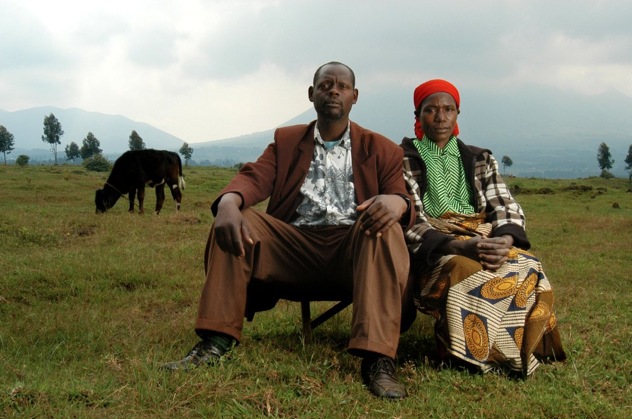
In the 1990s, Rwanda suffered one of the worst genocides in modern history. Over the course of 100 days, the country lost nearly 20 percent of its population—thanks to a murderous rampage by Hutu extremists. In the middle of all this barbarity, Rwanburindi Enoch and his wife took one look and said ‘not today’.
First, they refused to partake in the violence—at a time when moderate Hutus were getting murdered as much as the Tutsis. Second, Enoch opened the doors of their house to injured Tutsis, giving them shelter even as local Hutu Power types threatened him with death. Third—and most-awesomely of all—when he ran out of his space in his house, he built another one on his property specifically for Tutsis to hide in. When asked why he was endangering himself and his family, he said he couldn’t turn his back on a fellow Christian. In the end, Enoch saved many lives, despite it costing him his reputation, his money and nearly everything. Because sometimes, you just gotta do the right thing and consequences be damned.

You may have heard of the Sarajevo siege. For four years, Serb forces kept the Muslim-majority city pinned down under sniper fire. But for Enver Imamovic, the biggest worry wasn’t that he’d lose his life. It was that a single book might be destroyed by the invading forces.
Let’s back up a little: Imamovic was the director of the national museum—the most prized possession of which is the 660 year old Haggadah, a medieval book telling the Jewish story of Exodus. It’s currently insured for a billion dollars, but that evidently didn’t matter much in the midst of genocide. Fearing the Yugoslav’s People’s army would wipe out the oldest tangible trace of Bosnian Jewish culture, Imamovic literally risked his life to save it. And it was a risk: his story involves bribing police officers, dodging bullets and nearly being obliterated by a mortar. Yet he managed it: thanks to his efforts, this fragment of his city’s past survived the longest siege in modern history. The best part? Imamovic wasn’t even Jewish—he was Muslim. That’s right: even as his entire country was splitting along ethnic lines, Imamovic still gave enough of a damn about solidarity to risk his life for a symbol of their shared heritage.

Simply put, there has never been anywhere as horrific as Auschwitz. All the cruelty, sadism, indifference and psychopathy that our species is capable of reached its fullest expression between its walls, where 1.5 million people died pointlessly. Yet, even in the midst of this inferno, there were moments of humanity.
In 1941, three prisoners managed to escape the camp and consequently the deputy commander ordered ten prisoners to be starved to death in retaliation. When one of the randomly-selected men began to cry for his wife and children, another prisoner called Maximilian Kolbe stepped forward and offered to take his place.
Read that sentence again: in the middle of the most-notorious murder machine that’s ever existed, Kolbe was so moved by pity he volunteered to die in place of another man. And when the Nazis acquiesced and sent him into a bunker with the nine others, his spirit didn’t break. By all accounts, he spent the last two weeks of his life comforting the others with his Catholic faith and accepted his end with a dignity that should have been impossible in the circumstances. Nor was it a useless gesture: the man whose place he took—Franciszek Gajowniczek—lived another 53 years.








